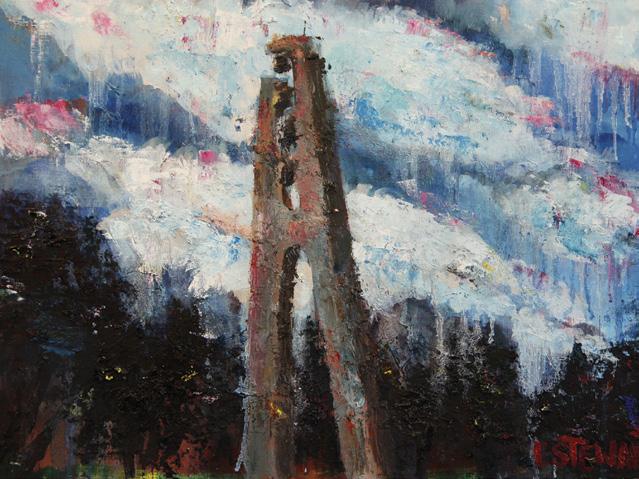

DIRECTIONS
Morgan Hall 209 ∙ 1700 SW College Ave ∙ Topeka, KS 66621
Phone: 785.670.1636 washburn.edu/cas ∙ facebook.com/washburncas
Dean: Laura Stephenson laura.stephenson@washburn.edu
Associate Dean: Matt Arterburn matt.arterburn@washburn.edu
Assistant Dean: Kelly Erby kelly.erby@washburn.edu
Assistant Dean: Tracy Routsong tracy.routsong@washburn.edu
Department Chairs
Art: Kelly Thor
Biology: John Mullican
Chemistry: Shaun Schmidt
Communication Studies: Jim Schnoebelen
Computer Information
Sciences: Bruce Mechtly
Education: Cherry Steffen
English: Vanessa Steinroetter
History: Tom Prasch
Kinesiology: Roy Wohl
Mass Media: Maria Stover
Mathematics & Statistics: Sarah Cook
Modern Languages: Miguel González-Abellás
Music: Craig Treinen
Philosophy & Religious Studies: Ian Smith
Physics & Astronomy: Karen Camarda
Political Science: Bob Beatty
Psychology: Cindy Turk
Sociology & Anthropology: Mary Sundal Theatre: Sharon Sullivan
Director, Mulvane Art Museum: Connie Gibbons
Directions is a publication for Alumni & Friends
Fall 2021 Vol. 13
Writers, Editors, and Photographers: Monique Robins monique.robins@washburn.edu
Michaela Saunders michaela.saunders@washburn.edu
Kelly Erby kelly.erby@washburn.edu
Contributing Photographers: Ernie Webb
Cover Photo: “Clouds Over WU” by Emma Johns, oil on canvas Washburn Senior Student Art Exhibit 2020
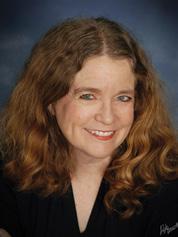
Joy in Togetherness
The landscaping on the Washburn campus, as captured on our cover, seems more beautiful every year. But this year, for me, the beauty of Washburn is in the excitement of students, faculty, and staff in being back on campus after the pandemic hiatus. I find myself deeply affected by commonplace occurrences, such as students shyly introducing themselves to each other after a class, commenting (and, of course, sometimes complaining) about a course assignment, chatting with a professor in the hallway, or walking across campus holding hands. At this year’s convocation ceremony, our faculty, dressed in academic regalia, formed the traditional colonnade to welcome our new freshmen and spontaneously broke into a dance as the marching band boisterously played songs by Earth, Wind, and Fire. (See photos, inside back cover.) I have so missed unplanned, in-person encounters during the pandemic that these are the moments I treasure.
After many months in which so many have experienced loss, disappointment, and exhaustion brought on by the pandemic, this year’s Directions stories inspire and reassure me that the College of Arts and Sciences continues in its mission to educate our students and prepare them for positions of responsibility and citizenship. As you read about the achievements and successes in the College, I hope you catch a sense of our joy in being back together.
Wishing you health and joyful moments of togetherness,

Laura A. Stephenson, Dean of the College of Arts and Sciences
Ichabods Assist with COVID-19 Relief
When the COVID-19 pandemic hit in 2020 and 2021, Washburn students and alumni rolled up their sleeves and went to work helping their communities.
Brenda Blackman (ba ’21), a Special Education teacher at Robinson Elementary School, began volunteering in May 2020 as a COVID Information Specialist in the Kansas Department of Emergency Management, a group that referred to itself as the “rumor control task force.” Blackman explains, “We’d see a rumor about COVID on the internet and do research to come up with two independent sources that either collaborated or refuted the rumor.” Next Blackman would create an infographic, such as the one below, to illustrate the facts and dispel any misinformation.
The group also established a hotline to answer the public’s questions about “critical infrastructure” businesses, such as grocery stores, which were kept open during lockdown. The hotline, which Blackman helped staff, soon fielded any and all questions about COVID. “It was not a job I ever saw myself having,” she said, “but I know we made a difference.”
Blackman’s day-to-day job duties fluctuated throughout her tenure with the task force – she did everything from creating infographics to contact tracing – but she was able to adapt. “I was lucky at Washburn to have professors
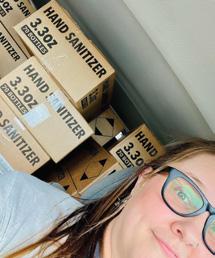
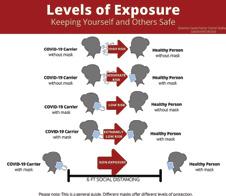
and faculty advisors who challenged me. They worked with me to develop good critical thinking skills and problem-solving abilities, and helped me understand how to achieve goals I set for my future. Those skills apply to every challenge.”
In February 2020, Rachel Zimpfer (biochemistry) started training as a Community Engagement Intern at Harvesters Community Food Network, a regional food bank serving a 26-county area of northwestern Missouri and northeastern Kansas. A month later the COVID-19 lockdown began. “I hadn’t even finished training,” Zimpfer said. “It was a huge shock.” As the economy slowed and people found themselves unable to work, demand for food assistance skyrocketed. “We had the same size staff,” Zimpfer said, “but demand increased 40% due to the financial hardships COVID caused.”
Although many staff members could not come in to work due to social-distancing precautions, Harvesters nonetheless found ways to address community demand for food assistance. In Kansas, the National Guard stepped in to help, packing boxes of food and loading them into cars. Last year, Harvesters distributed 70 million pounds of food through their community partners in Kansas and Missouri.
Zimpfer said the hardest part of the situation was seeing the devastation of food insecurity within the community, but she is glad the crisis has prompted a national discussion about the issue. “It’s disheartening work; you are confronted daily with human suffering. But now people understand hunger isn’t a far-off problem; it affects your neighbor and your community.”
Above: An infographic by
Left: Brenda Blackman delivers a carload of hand sanitizer to her middle school.
Blackman.
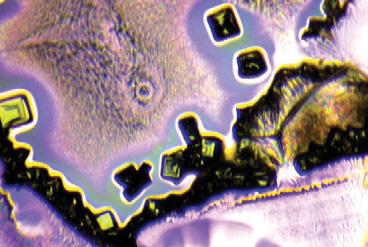
After graduation, Matthew Ingenthron (bs ’18) accepted a position at Pfizer, Inc. as a Particle Laboratory Chemist. In this role, Ingenthron performs forensic analysis utilizing a set of skills he learned in classes with Washburn Assistant Professor and Director of Forensic Chemical Science, Holly O’Neill.
“As a biology major,” Ingenthron said, “I was also able to take electives in forensic science. Professor O’Neill is passionate about making sure her students get experience using professional instruments and techniques, which definitely contributed to my being hired at Pfizer.” Ingenthron also credits his success to excellent mentoring by John Mullican, Professor and Chair of the Biology Department. “It’s crazy to think back, but I graduated and then walked right into this job. I could do that because Dr. Mullican and Dr. O’Neill made sure I was prepared.”
As a Particle Laboratory Chemist, Ingenthron works in quality control as a chemistry detective whenever an irregularity occurs in the drug manufacturing process, including Pfizer’s COVID vaccine. His ensuing investigations determine the nature of the irregularity, its cause, and any actions needed to address potential problems.
For example, visual inspections by humans or cameras might see an object in a tube of COVID vaccine that looks like a shard of glass. Ingenthron performs analysis on such tubes. Perhaps the “shard” is actually an air bubble. If it is a particulate, Ingenthron determines the nature of the particles, how and where in the manufacturing chain the contaminant entered the tube, and if any other tubes were affected. Ingenthron also tests foreign substances, such as stray fibers, found in otherwise sterile lab environments, and his observations are used to help locate the source of contamination. The picture above shows particulates Ingenthron photographed under the electron microscope he uses in his investigations.
Ingenthron describes himself as “one of many, many people in a long sequence making sure these medicines are the highest possible purity, potency, and quality. It is very rewarding work.”
Left: A microscopy image taken by Matthew Ingenthron showing crystalline residues left behind upon evaporation of a solution containing particulates less than 150 micrometers in size.
Emily Unruh (ba ’21), is currently the Director of Governor Kelly’s Office of Constituent Services, but during most of the COVID-19 lockdown she worked as one of five people in the Governor’s COVID Recovery Office on the task force SPARK (Strengthening People and Revitalizing Kansas). SPARK was responsible for distributing federal funds from the COVID-relief CARES Act to Kansas agencies.
The most difficult aspect of Unruh’s job was navigating the legal restrictions of the CARES Act, as the guidelines changed daily. Unruh spent much of her time working with lawyers to understand the law’s requirements, knowing decisions made one day might have to be unmade the next as the legal environment continued to evolve.
“Because there weren’t many of us on the task force,” Unruh said, “I was thrust into responsibility right away. They immediately needed us at full capacity, so what I was doing was even more important than I expected. As a twenty-year old, I was telling experienced county commissioners they couldn’t have funds because their request didn’t fit the law’s guidelines.”
The work changed Unruh’s goals along with her perceptions. She had intended to go into international business law, but is now pursuing a career spanning medical law, bioethics, and health insurance. “Living through a pandemic teaches you the value of health,” Unruh said. “Working for the government during a pandemic teaches you the value of health law.” Unruh believes being a lawyer should also mean being an advocate. She says there is a need for such advocacy, especially in rural communities like Garden City where she grew up.
Mulvane Expands Photography Collection
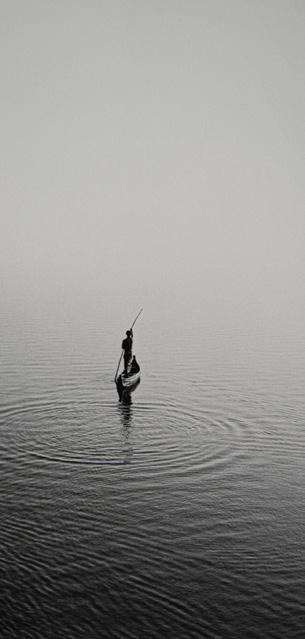
Connie Gibbons, Director of the Mulvane Museum of Art, has wanted to expand the museum’s photography collection for quite some time. In spring 2021, Gibbons collaborated with the Summit Art Advisory group to connect with collectors interested in donating photographic art, and her efforts led to a remarkable acquisition of over 600 new photographs for the museum.
The new collection contains a broad variety of well-known photography artists, including Peter Turnley, whose images capture key political moments in world history; stunning landscapes by Sally Gall; the iconic sports photography of Walter Iooss; and the artistic vision of Larry Fink, whose ambiguous depictions of high-society parties inspire discussion. During a recent visit to the International Photography Hall of Fame and Museum in St. Louis, Gibbons noted several of the artists whose work is in the Mulvane collection, including Fink and Iooss, are represented in that prestigious setting. She found it illuminating to compare other pieces of their work to those in the Mulvane’s new acquisitions.
While excited about this new collection, Gibbons remains eager to add photography to the Mulvane’s inventory. She is especially interested in acquiring works by Kansas artists not yet represented
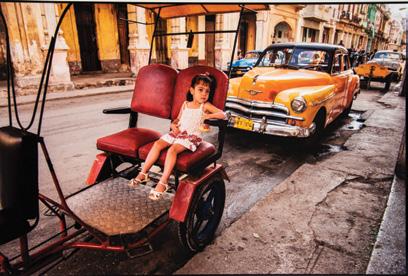
in the Mulvane, as well as enhancing current holdings by female artists, artists of color, and young artists making their mark.
Additionally, Gibbons challenges the notion that a museum’s artwork is accessible only within the confines of a museum exhibit. She passionately encourages the use of the Mulvane’s collections as a resource for classroom teaching across campus. She enjoys working with Washburn faculty to arrange curated selections of artwork for students to review and discuss. “The Mulvane is such a vast resource for the campus, a way into conversations about history, contemporary events, psychology, and social issues that is engaging and exciting for students in any classroom. I love working with faculty to curate selections, online or not, to create narratives about topics they’ll be addressing in class.”
Because the new photography collection is so large and varied, it will be displayed in many different exhibits going forward, rather than shown all together. To learn more about upcoming exhibits and special events at the Mulvane, visit MulvaneArtMuseum.org, or follow the museum’s Facebook page, @MulvaneArtMuseum.
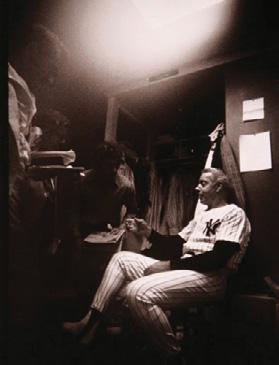
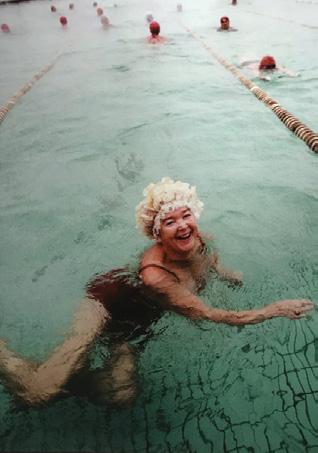
From left: Burma by Sally Gall
Centro Havana, Cuba by Peter Turnley
Joe Dimaggio Talks to Ira Berkow at the Old Timer’s Game at Yankee Stadium by Walter Iooss
Smiling Woman in Pool, Chelyabinsk, Russia by Peter Turnley
Sentences, Stories, and Starting Again
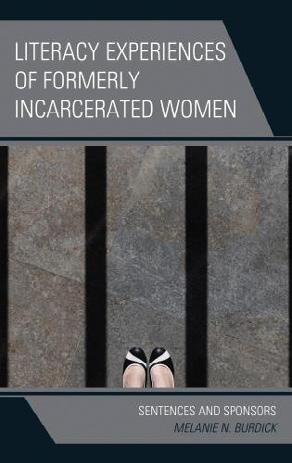
We tell our personal stories every day. When telling co-workers what we did over the weekend, sharing the memories of a victory, or explaining a defeat, we construct narratives that tell people who we are, what we value, and how we wish to be treated. As Melanie Burdick, Professor of English and Director of the Center for Teaching Excellence and Learning, writes in her new book, Literacy Experiences of Formerly Incarcerated Women: Sentences and Sponsors (Lexington Books, 2021), “We all live life through the storying of our experiences.”
What would it feel like to interact with people who knew you only by the worst story of your life, the most devastating thing that had ever happened to you?
This is the reality for many incarcerated and formerly incarcerated people: they are often viewed solely through the lens of their crimes and can struggle to form new identities outside of the role of prisoner. This contributes to recidivism, or a tendency of a convicted criminal to reoffend. In Literacy Experiences, which is based in qualitative, narrative research conducted with four formerly incarcerated women, Burdick details her research into how literacy and the written word helped these women internalize new stories about themselves and see themselves as more than their previous crimes.
Burdick asked her interviewees to tell a story of a time when they remembered reading or writing before, during, and after incarceration, and about literacy sponsors, positive and negative, who impacted their literacy. It was important to Burdick she perform her research ethically and prevent as much subconscious bias on her part as possible. Therefore, her interview protocol “specifically did not reference the participants’ criminal activity or ask participants to divulge why they had been incarcerated.” The women interviewed were therefore free to describe themselves as they wished.
One trend Burdick noticed was that the participants recounted stories of literacy experiences connected to their identities as mothers “to circumvent and complicate the
negative roles as inmate, criminal, or victim, which have been placed upon them.” Most women lose custody of their children when they are incarcerated and are not allowed to see them while in prison. The women in Burdick’s study used literacy and storytelling to retain their identities as mothers. According to Burdick, “being able to envision yourself in other stories, being able to tell stories about yourself that aren’t edited by other people – these things are extraordinarily important for personal growth.”
Burdick’s Literacy Experiences also provides in-depth consideration
of the obstacles faced by one formerly incarcerated woman, Diane (a pseudonym), as she transitioned to become a full-time college student upon her release from prison. Despite having advantages over most formerly incarcerated women, such as a partner who supported her, the transition was still a difficult one. Burdick said conducting the interviews with Diane and the other women for her book “made me passionate about building bridges to create a post-incarceration program to support them on our campus.”
Assisting incarcerated people to see their inner potential is also the goal of Washburn’s Corrections Project. In 2019, Washburn University applied for and was accepted into this national program, which partners universities with prisons in order to provide educational opportunities to incarcerated populations. The current cohort in the Washburn’s Corrections Project has sixteen students who enroll in four classes each semester to make progress toward an associate’s degree. Due to the COVID-19 pandemic, the classes Washburn offers through
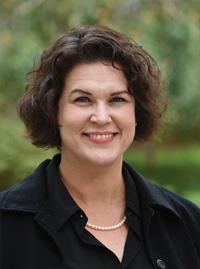
the Corrections Project are currently being taught entirely virtually. Washburn is the only four-year university in Kansas participating in the program, which means the students can continue on to pursue a bachelor’s degree at the same institution after release.
Jennifer Pacioianu, Adjunct Instructor of English, is teaching her second class through the Corrections Project this fall. She says she “loves teaching the class” and has been blown away by the students. “They are so enthusiastic, so committed, some of the most dedicated students I have ever worked with. They are so hopeful about how this program can positively impact their future.” She added that on the whole they are “aware of the importance of keeping up and staying on task,” more so than most first-year students. “Last semester the entire class turned in every paper on time. The entire class, every paper, all semester. I’ve never had that happen in a typical college course.”
Burdick emphasizes that programs like the Corrections Project are vital in removing barriers to education for individuals serving prison sentences and for formerly incarcerated people transitioning to civilian life so each student can become their best self for their own life’s story.
Melanie N. Burdick, Professor of English and Director of C-TEL
Cover, Literacy Experiences of Formerly Incarcerated Women, Lexington Books, 2021
Above:
Left:
LEAPing Toward Success:
First 3+3 Law Early Admission Program Student Enters School of Law
Hannah Peterson set out to be a lawyer. She’s become a trailblazer along her way. Peterson, 21, is the first Washburn student to advance through the new 3 + 3 Law Early Admission Program, also known as LEAP. She is a first-year Washburn Law student and will graduate in May 2022 with her bachelor of arts in political science.
LEAP is designed to allow the final year of a student’s undergraduate degree to be completed concurrently with first-year law school requirements. Students in 18 different degree programs are eligible to participate in the program, which includes significant scholarship and mentorship support.
“I’d always wanted to go to law school. The LEAP program made Washburn seem like a no-brainer,” Peterson said, explaining she submitted her LEAP application to Steve Cann, Professor of political science, at the same time she applied for admission to Washburn as a high-school student. “He’s really the one who got me interested in LEAP. Financially it was a really good decision. Time-wise it was a great decision as well.”
As a “LEAPer,” Peterson’s first year of Washburn Law is covered by a full tuition scholarship. She’ll be eligible for a $5,000 tuition scholarship each of the next two years as well. In her three years of undergraduate study she received legal mentorship from a community professional, served as president of the pre-law club for two years, and held a summer job at a local law firm. Peterson anticipates graduating from Washburn School of Law in 2024.
LEAP “doesn’t feel like a dual program. But a lot does ride upon me doing well
my first year of law school. I have to pass my law classes to complete my undergrad degree,” Peterson said. “It doesn’t seem insurmountable to me, though. Washburn faculty make it do-able.”
Following Dr. Cann’s retirement, Linsey Moddelmog, Associate Professor of political science, has stepped into the role of pre-law and LEAP coordinator. At the encouragement of both College of Arts and Sciences Dean Laura Stephenson and School of Law Dean Carla Pratt, Moddelmog has been working with each of the college’s departments and Bachelor of Integrated Studies program to develop
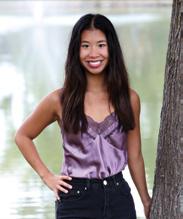
academic plans and sample schedules so students in almost any CAS major can LEAP.
While a concurrent law and undergraduate program is not unique nationally, Washburn’s LEAP scholarship support is noteworthy in that it creates a low-risk and high-reward option for students conscious of both their time and their long-term debt.
“This is a great opportunity because the expense is a barrier to so many people,” Moddelmog said of students who aspire to law school. “Highly motivated students can save time and money. They can study anything they want for their undergraduate degree. All majors have unique gifts to contribute to legal preparation.”
To those hesitant about missing out on the undergraduate experience, Peterson advises planning ahead for the experiences you want to have. “I traveled abroad, I completed internships with a lobbying firm and on a political campaign. Washburn has afforded me all of those opportunities and amazing scholarships,” she said. “It’s worth it 100 percent. I wish I knew more people interested in law school because I would get them into the program. What more could you ask for?”
For an application or more information about LEAP,
Hannah Peterson
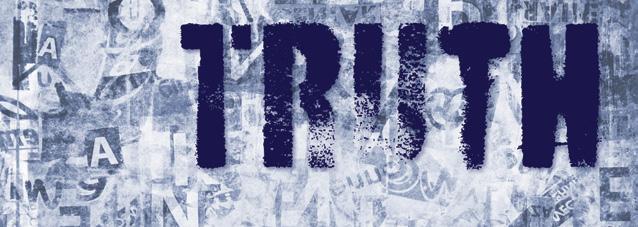
WUmester 2022
WUmester fosters a university-wide conversation on a new topic each spring semester. The goal is to engage the entire WU community in a cross-disciplinary learning experience on timely subjects and help students see the connections between the subjects they study in the classroom and real-world debates and problems. WUmester 2022 will examine the concept of truth from the perspectives of academic disciplines and through a variety of co-curricular programming. Participants will consider how truth, knowledge, and belief shape the world we live in and the power structures that influence how we come into relation with truth. Ultimately, this will encourage members of our community to become more discerning consumers, seekers, and interpreters of information.
Keynote Speaker: March 1, 2022 6:00pm Bradbury Thompson Alumni Center
Albert Woodfox, activist and author of Solitary, a 2019 non-fiction National Book Award and Pulitzer Prize finalist. A former member of the Black Panthers and one of the “Angola Three” wrongly convicted of killing a prison guard, Woodfox spent over four decades in solitary confinement before being freed by The Innocence Project. In addition to giving a public keynote address, Woodfox will spend time with classes and multicultural student organizations to discuss his long journey to justice.
Harman Lincoln Lecture: February 2, 2022 7:00pm Bradbury Thompson Alumni Center
Kellie Carter Jackson, Associate Professor at Wesley College and author of Force & Freedom: Black Abolitionists and the Politics of Violence.
Mulvane Art Museum WUmester Exhibition: February 4 - July 23, 2022
Curated from the permanent collection, the exhibition will explore the various meanings and definitions of truth. In particular it will consider how distinct identities shape perspectives and understandings of social and political issues.
WIFI Film Festival: April 29 - May 1, 2022
Events include a workshop on making historical documentaries that accurately and professionally shed light on unknown stories.
Historical Resonance: History Department Events Illuminate Current News
In the Washburn Department of History and Geography, “history” is not confined to the past but is rather a living, breathing exploration of the contemporary world grounded in the context of what has come before. Nothing exemplifies this more than the panels, research presentations, and historical movie night events regularly held by the department and the history student honorary society, Phi Alpha Theta.
Tom Prasch, Professor and Chair of the Department of History and Geography, has been helping to organize these events since he became the faculty advisor to Phi Alpha Theta. Prasch says the goal of the programming is to add “historical resonance” to current-day issues.
Recent panel topics have included “Endgame in Afghanistan,” discussing the withdrawal of United States troops from Afghanistan in April 2021 and “1619 in the Classroom,” in September 2020 when controversy was cresting over the New York Times’s 1619 Project. According to Prasch, the panels aren’t planned far in advance, but are put together
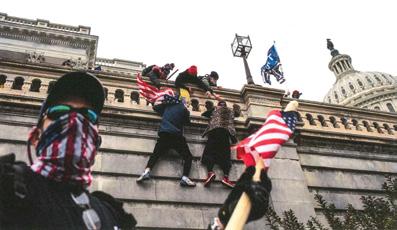
as reactions to important events in the news. “We couldn’t have predicted the insurrection at the Capitol, for example,” said Prasch. Soon after the siege in January 2021, however, he and Phi Alpha Theta organized the two-part panel “Understanding the Insurrection.”
When forming panels, Prasch and Phi Alpha Theta endeavor to include interdisciplinary experts to broaden the discussion. An advantage of using Zoom as a platform for these panels in addition to physical classroom spaces is the potential to include experts from outside Kansas, without the need for travel. The panel “Endgame in Afghanistan,” featured Zarena Aslami, Associate Professor at Michigan State University, who specializes in Victorian-era Afghanistan. Her perspective and expertise added important depth to the discussion. Using Zoom also means the panels and presentations can be recorded for general viewing and as a classroom resource. Prasch includes links to the recordings in the department newsletters shared each semester.
In addition to panels, the department uses Phi Alpha Theta as a forum for faculty
Clockwise from left: Flyer art promoting the “Understanding Movie poster for Die Pest in Florenz Flyer art promoting “The
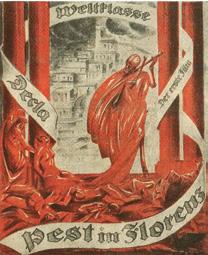
and students to share their historical research. Students who present research at regional or national history conferences are invited to present their work on campus, and faculty throughout Washburn have been invited to share progress and insights from their current scholarly projects. In September 2021, Eric McHenry, Professor of English, gave a presentation about his recent research into African American folk legend Lee Shelton, aka Stackolee, and the historical (in)accuracies of popular stories about Shelton. In November, Kelly Erby, Professor of history, and Bruce Mactavish, Assistant Professor of history, presented research into the nineteenth-century pro-slavery Missouri Senator and Border Ruf-
fian leader David Rice Atchison. This presentation focused on how historians attempt to seek objective truth about the past and the challenges they face in doing so.
Phi Alpha Theta also hosts a monthly “Historical Movie Night” featuring film classics and films with historical themes. This popular campus event was in peril during the COVID-19 pandemic when all events had to be virtual. No copyrighted material may be legally shared over Zoom, so Prasch had to get creative and find relevant movies that were out of copyright. One such movie was the 1919 black and white The Plague in Florence (Die Pest in Florenz). Since many uncopyrighted works are silent films, Prasch
Upcoming panels, movie nights, and presentations are publicized on the Facebook pages of the history department and Phi Alpha Theta. When events are streamed, Zoom links are included in the announcements so anyone can attend. Facebook pages are:
@WashburnUniversityHistory
@Washburn-University-PhiAlpha-Theta
To sign up for the newsletter, which includes links to event recordings as well as department news, contact Kelly Erby, at kelly.erby@washburn.edu. and Matt Nyquist, Assistant Professor of mass media, spoke over them during the screenings to share insights, in the style of Mystery Science Theater 3000 or RiffTrax. This spring’s WUmester topic will be Truth (see page 11 for more information about WUmester). Since its inception, WUmester has been “a huge inspiration” to the department’s programing. “We look to the WUmester theme,” said Prasch, “and plan fitting events.” Prasch is excited about this spring’s upcoming movies, which include The Return of Martin Guerre and the Orson Wells documentary, F is for Fake.
Small School, Big Screen:
Special Guest Stars Demystify the Film Industry for Washburn Students
Starting a new job is tough, but knowing what to expect and what’s expected can make all the difference. That’s why Matthew Nyquist, Assistant Professor in the Department of Mass Media, has made it his mission to demystify the film industry for his Washburn students.
Through a series of guest lectures by Academy Award winners and industry leaders, Nyquist’s students receive critiques, knowledge, and opportunities rivaling those at elite film schools. The visits are hosted via teleconferencing so guests do not have to travel. Visitors so far include Allan Holzman, director and editor (Survivors of the Holocaust, Old Man River); Rick Carter, production designer and art director (Avatar, Lincoln), Leonora Anzaldua, cinematographer (Empty Sandbox); Anna Elizabeth James, screenwriter and director (Deadly Illusions, Destined to Ride); and Sev Ohanian, screenwriter and producer (Fruitvale Station, Judas and the Black Messiah). Other lectures are being planned.
When guests are first announced to classes, Nyquist said it is common for students to be a bit starstruck, but in preparation for that guest lecturer, “it’s important for them to understand these are regular people. I’ve told them: ‘These people are no different than any of you.’”
“They need to learn the technical aspects, but the most important thing is they need a sense of empowerment,” Nyquist said
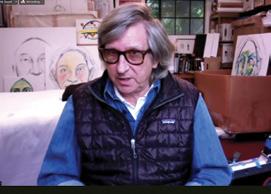
Rick Carter, production designer and art director, visited with mass media students via Zoom.
of his students. “They have to work really hard and know what they’re doing, but they also have to know they can do it. Getting face time with these guests helps build confidence.”
Nyquist, originally from Lindsborg, Kansas, was encouraged by a cousin in the industry to attend the University of Southern California (USC), where he received a Master of Fine Arts in Film and Television Production. After graduation Nyquist worked in Los Angeles before returning to Kansas to be closer to his parents. Nyquist uses his personal connections to develop in his Washburn students the same enthusiasm and confidence his cousin inspired in him: “In acting there’s luck involved, but film-making is less luck. It’s work ethic.”
Rick Carter won the Academy Award for best production design for Avatar (2009) and Lincoln (2012) and has worked on many notable films including Star Wars: The Rise of Skywalker; Jurassic Park, and Back to the Future Part II and Part III. In February 2021 he visited with more than 70 Washburn students and community members via Zoom. Carter visited with just two other schools that spring: USC and New York University graduate schools, considered the top film schools in the United States.
“The students here are so thankful and appreciative to the people who give their time,” Nyquist said. That appreciation led Holzman to encourage Carter to take the opportunity. Holzman, a longtime collaborator of Carter’s, is a mentor and friend of Nyquist. The results of Carter’s lessons in production design were immediately evident. Students who were making their short films in the first level production class when Carter spoke “did a lot more thinking about what they can do,” Nyquist said, including filming on location in a bar and in a veterinarian’s office.
Nyquist shares other insider knowledge with his students, including set protocol and lingo, how to properly coil a cable, how many paper fasteners to put in a script (two), and an understanding of the specific role and responsibility of the different positions on set. “Don’t put your hands in your pockets on set,” he said as an example, so you never look bored. “And don’t step on others’ toes. You have to stay in your lane.” With these experiences and the advice of veterans, the big time is brought within reach of Washburn film graduates.
Department Highlights
When asked for highlights this year, the first answer given by many was echoed in the words of Cherry Steffen, Professor and Chair of the Department of Education:
“The biggest highlight I can think of for the last year is the fact that we survived and were still able to provide our students with a quality education.”
The College of Arts and Sciences is grateful to our faculty and staff and the efforts they made to adapt to the changing circumstances of the past year. As the highlights show, we not only survived, we published, researched, traveled, produced shows, held events, and, of course, supported our students.
Art
An exhibit at the Oklahoma State University Art Museum featured projects by students in Professor Marguerite Perret’s class, Reflections on Water During a Pandemic. Perret was also involved with a large-scale collaborative installation in six galleries, The State We’re In: Constructing a Sense of Place in the Hydrosphere. Assistant Professor Kwok-Pong “Bobby” Tso was a visiting artist, presenter, and discussion moderator at the National Council on Education for the Ceramic Arts. Via a Sweet Sabbatical grant, Associate Professor Danielle Head traveled and researched a new photography project, Things ‘Bout Coming My Way.
Biology
Professor Rodrigo Mercader and Assistant Professor Tracy Wagner published a journal article with student Brett Breitkreutz. Associate Professor Takrima Sadikot was the mentor for student Frances Befort, who represented the department at Undergraduate Research Day at the state capitol. Assistant Professors Paul and Tracy Wagner and students Caleb Phelps, Jenna Shortridge, and Blake Cheatham researched if face masks cause drops in oxygen saturation levels.
Chemistry
Student Rajesh Kandel received the Star Trainee Award by K-INBRE and presented at the Central INBRE Conference and the ACS Midwest Regional Meeting. Assistant Professor Holly O’Neill published an article with students Gretchen Hogan and Rachel McKiddie about a tool to assist Kansas law enforcement in distinguishing between legal and illegal forms of cannabis.
Communication
Studies
One of the department’s largest cohorts to date, 22 undergraduates and 12 graduate students, received degrees in May. Sixteen incoming graduate students started this fall, one of the largest incoming classes for the department. The Debate team placed in the top three at five invitational tournaments and ended the season placing second and fifth place at two national tournaments. The Mock Trial team earned a top three finish on the invitational level.
Computer Information Sciences
Professor Nan Sun co-authored two papers with students, both in the journal Issues in Information Systems: “An Applied Study of RNN Models for Predicting Cryptocurrency Prices” with Dane Vanderbilt and Kun Xie; and “A Study of the Role of VR in Mental Health Based on Public Opinion” with Daniel Corrales, Tyler Cross, and Cian Renner.
Education
Lecturer Tracie Lutz, Lecturer and Field Placement Director Craig Carter, and Senior Administrative Assistant Robyn Dudney were advisors for the Washburn University Next Generation Educators organization, WNGE. Professor Gloria Dye is heading the Limited Apprentice Program for Washburn, which provides paraprofessionals or substitute teachers an opportunity to pursue a master’s degree in High Incidence Special Education. In August the department successfully completed the Council for the Accreditation of Educator Preparation national accreditation for graduate programs and is now fully accredited at both undergraduate and graduate levels.
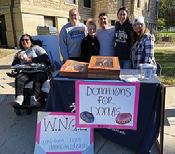
Education: WNGE was active with community outreach, including holding a Donations for Donuts fundraiser.
English
The Department piloted an online EN101 class at the Topeka Correctional Facility. (See page 8.) Again this year, every English major who completed their student teaching received job offers. Associate Professor Mary Sheldon retired this year after 33 years of service. Senior Lecturer Dennis Etzel, Jr. published Two Ponders, a collaboration with Barbara Waterman-Peters. Senior Lecturer Izzy Wasserstein was selected as the Fall 2020 recipient of the ArtsConnect Arty Award in the Literary Arts category.
History & Geography
The history honorary society, Phi Alpha Theta, continued their programming despite the pandemic (see page 12.) Professor and Chair Tom Prasch, Professor Kelly Erby, Professor Kim Morse, and Professor Kerry Wynn participated in the 2020 WUmester theme of sustainability through the CAS Faculty Colloquium and activities in a number of honors programs and classes.
Kinesiology
The WU Moves Community Wellness program completed its 5th year of serving the Topeka area and remains at capacity with over 90 visits weekly. Professor Park Lockwood, Professor and Chair Roy Wohl, and School of Nursing Lecturer Kathy Ure published their research on this program in the College Student Journal. The department is offering a Personal Training Certification course. Lecturer Karen Garrison was appointed as a District Representative to the first National Athletic Trainers’ Association Connection and Engagement Committee. Assistant Professor Ross Friesen made on online presentation at the KAHPERD Online Professional Development Workshop addressing pandemic concerns of physical education teachers.
Mass Media
The WIFI Film Festival 2021 was virtual and had great attendance online. Assistant Professor Matt Nyquist and Lecturer Sam Finch were assisted in directing the festival by the Film Festival class taught by Nyquist. Assistant Professor Andrew Anglin continued his role as a board director of the Topeka Advertising Federation, helping to establish Spark Topeka, a professional development event aimed at college students.
Mathematics & Statistics
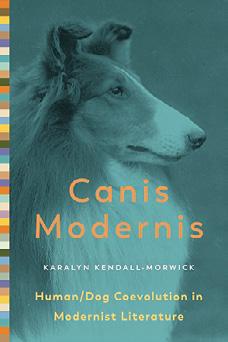
English: Associate Professor Kara Kendall-Morwick published a monograph, Canis Modernis: Human/Dog Coevolution in Modernist Literature.
Student Kael Ecord won first place in the Class Project Competition at the 2nd Annual Midwest Math and Statistics Conference. Students Sanskar Neupane and Kamana Adhikari won second place. The department welcomed Jillian Kimzey as the new Math Lab Manager.
Modern Languages
Professor Courtney Sullivan had an article published in Contemporary French Civilization. Senior Lecturer Georgina Tenny taught a special medical Spanish course for School of Nursing. Professor and Chair Miguel González-Abellás has a chapter forthcoming in Historia de la ciencia ficción latinoamericana (History of Latin American Science Fiction).
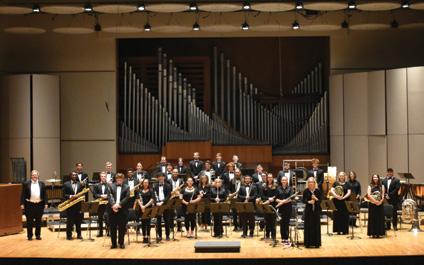
Above, Music Department: The Washburn University Wind Ensemble was selected to perform at the College Band Directors National Association Southwest Conference in spring 2022.
Below, Physics Department: The Physics and Engineering Club built a pumpkin launcher as a fundraiser.
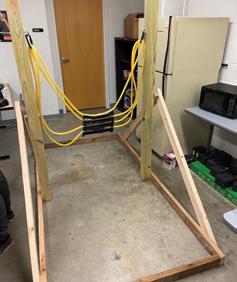
The Washburn University Wind Ensemble led by Assistant Professor Tom Seddon was one of five bands selected to perform at the College Band Directors National Association Southwest Conference. In November, Lecturer Von Hansen performed his composition Loops for Vibraphone and Electronics at the Percussive Arts Society’s International Convention. Lecturer Lucy Tan was invited to present her research on musical narrative at the Kansas Music Teachers Association conference. Professor Tom Morgan published two original compositions, Suite for Vibraphone and Fantasia for Woodwind Quintet.
Philosophy & Religious Studies
This year Assistant Professor Chris Jones published an article, “Responding to Political Hot Points in Real Time: A Twitter Thread” and a book chapter, “Bring Back the Trivium Rhetoric and Anti-Authoritarianism in Biblical Studies.”
Physics & Astronomy
Professor Brian Thomas co-authored “Gamma-rays from ultracompact minihaloes: effects on the Earth’s atmosphere and links to mass extinction events” in the Monthly Notices of the Royal Astronomical Society. Thomas and Assistant Professor Vince Rossi mentored students who presented at the virtual Undergraduate Research Day at the state capitol.
Political Science
This year, 22 students interned in the Kansas Legislature, the Kansas Governor’s Office, and other non-profit and governmental agencies. Associate Professor Linsey Moddelmog received a Sweet Sabbatical to study government and politics in western Europe. Assistant Professor Amber Dickinson was chosen as a co-host of the new KTWU-TV program Inspire. Lecturer Grant Armstrong made presentations on political topics, including the League of Women Voters. Professor and Chair Bob Beatty hosted the KTWU-TV program I’ve Got Issues and gave over 50 interviews to state and local media after the 2020 election.
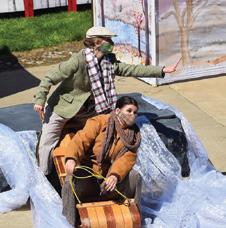
Theatre Department: Students gave outdoor performances on campus of A Year with Frog and Toad. Shown: Hannah Kirby and Taylor Molt.
Psychology
Student Jonathan Huffman was the recipient of the 2020 Vance and Marilyn Hall Graduate Research Award. Psychology graduate and former WU football player Kyle Hinton was drafted by the NFL Vikings. Despite the pandemic, the Psychology Clinic continued to offer services through telehealth. Adjunct Valerie Peckham was a guest on KTWU’s I’ve Got Issues, “Taking Care of You,” about the importance of self-care and managing anxiety.
Sociology & Anthropology
Assistant Professor Lindsey Ibañez published a paper on relational work in Nicaragua’s low-wage labor market and another on job referrals in the global south. Assistant Professor Jason Miller published an article on undergraduate student-led anthropology research. Associate Professor Alexandra Klales published several research papers on forensic sex estimation methods, two co-authored with Washburn alumni.
Theatre
While many theatres closed during 2020-2021, WU Theatre produced five live productions to limited audiences and added a streaming option. Students performed A Year with Frog and Toad for three Boys and Girls Clubs in Topeka and staged outdoor performances on campus. Student Taylor Molt starred in the student-directed and designed production of The Last Five Years as her senior capstone. Lecturer Ted Shonka directed Jen Silverman’s The Moors.

In Memoriam
June 1, 2020 - November 30, 2021
The College of Arts and Sciences lost many friends and colleagues since June of last year. We offer our heartfelt condolences to the families and friends of those who passed. Although they are no longer with us, Washburn will always be richer for the impact they made and the lives they touched.
Dr.
Lyle Baker
Mrs. Marie Boaz
Dr. Terry Booth,
Dr. Steve Cann
Mr. Arden Cowherd
Mr. Joshua Dirks
Dr. Marilyn Geiger
Dr. Dan Harden
Mr. Edward Marchant
Dr. Burney Mendenhall
Dr. Sue Salem
Mrs. Nancy Shermoen
Mrs. Karen Simpson
Mr. Bob Thompson




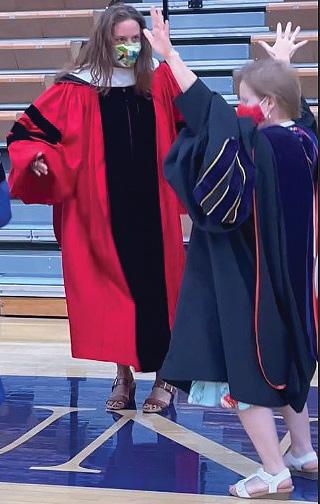
Kelly Thor (left), Professor and Chair of the Art Department, shares an impromptu dance with Professor Kim Morse (right) during convocation.

